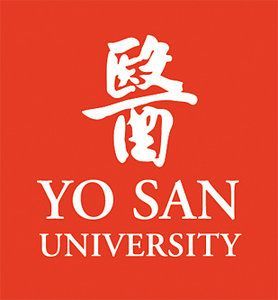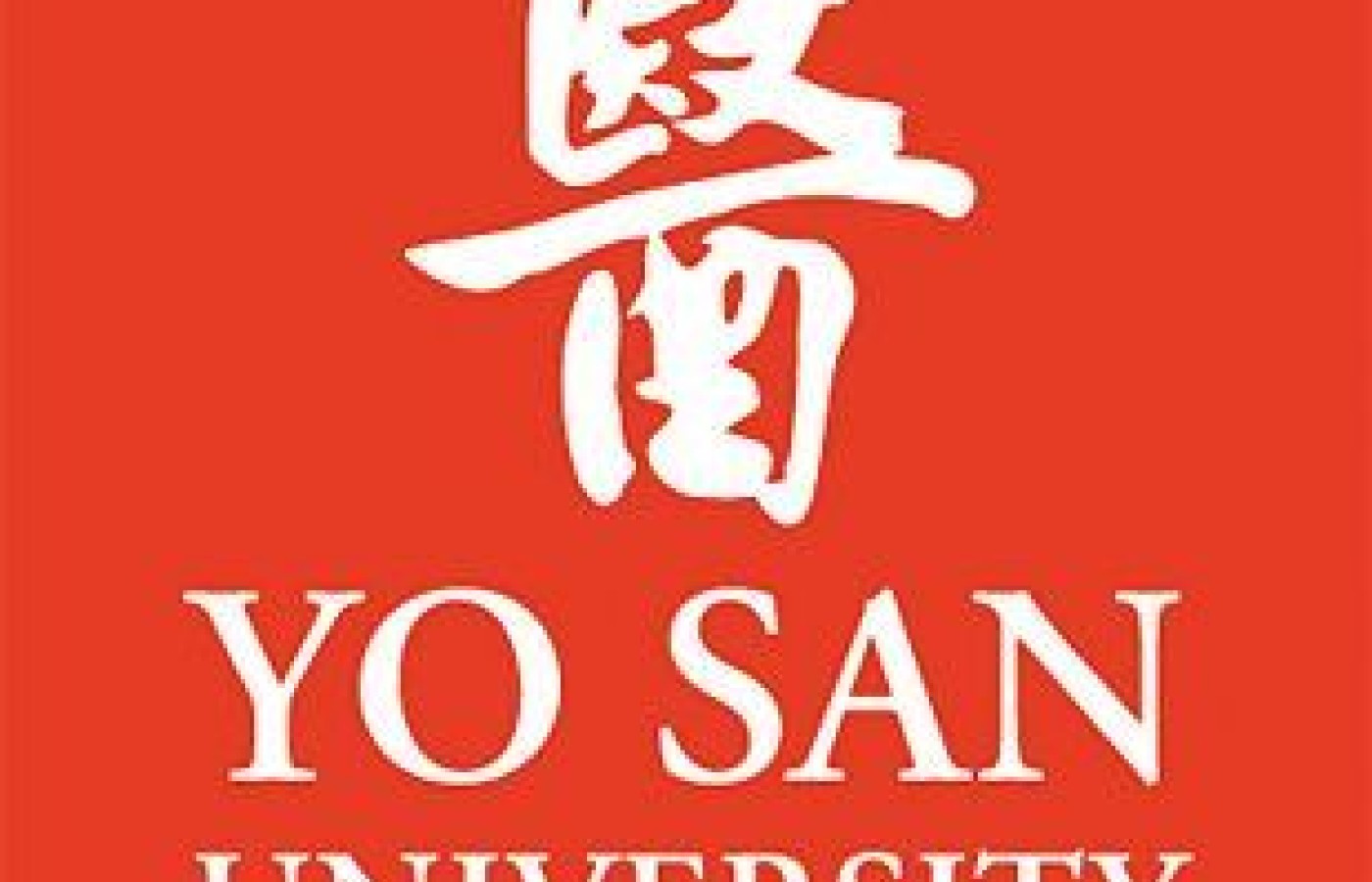The most important relationship I seek to nurture in the treatment room is the one a patient has with their own body. We live in a culture that teaches us to override pain, defer to outside authority, and push through discomfort. Patients often arrive hoping I can “fix” them, but the truth is, we can’t do the work for them. We can offer guidance, insight and support, but healing requires their full participation.
Yo San University Helps Make LA Communities Healthier
An element of healthcare training often overlooked is the residual benefit to communities served by Acupuncture and Oriental Medicine (AOM) schools nationwide. AOM schools across the country are committed not only to educating exceptional practitioners, but also to working in partnership with local organizations to serve the evolving healthcare needs of their communities.
In Los Angeles, Yo San University of Traditional Chinese Medicine (YSU) collaborates with healthcare and social service providers throughout Southern California to meet what it determines to be an essential element of its commitment to its students' comprehensive educational needs, and to forward its mission as a premier integrative healthcare provider in the community.
Yo San University has many different community projects, including partnerships with Children's Hospital-Los Angeles for a pediatric pain clinic, Being Alive Los Angeles Wellness Center for HIV/AIDS patients in West Hollywood, and the Venice Family Clinic and Simms/Mann Health and Wellness Center, which is the largest free clinic system in the nation and serves underrepresented populations. Each of these sites offers students an opportunity to learn about population health management, health disparities, and the delivery of culturally-competent care from unique vantage points.
The Spirit of Community Partnerships

WISE & Healthy Aging in Santa Monica, Calif., is a powerful example of YSU's community partnerships. A nationally-recognized leader on aging, the organization is dedicated to enhancing the independence, dignity and quality of life of older adults through leadership, advocacy and a wide array of innovative services.
Now in its fourth year, the acupuncture clinic at WISE & Healthy Aging is the result of an exclusive relationship forged between Yo San and WISE & Healthy Aging. YSU provides medical supervision and graduate students who provide the acupuncture treatments, while the agency provides the marketing, space and administrative infrastructure. "It's a win-win for both organizations," said Grace Cheng Braun, WISE & Healthy Aging's President & CEO. "In addition, students gain specialized training and experience in working with older adults. Seniors receive relief from chronic pain and other conditions, while caregivers are less stressed and more energetic when they receive treatments."
Fourth-year master's degree student extern Emily Keaty not only gained the focused training the externship is designed to provide, but an appreciation for the necessity of the service. "I gained a much deeper understanding of the unique needs of aging adults that simply reading about had not prepared me for. With this experience, I can see myself sooner in my practice being able to help aging adults live longer, more active lives. With our aging population this is an area of real need."
Through her externship, Emily observed that the elderly respond very well to acupuncture and that much of what they experience may be related to side effects of medication. "Adding acupuncture to their wellness plan," she said, "can make a huge impact on seniors' quality of life. It can keep their blood pressure in check, help with shortness of breath, memory, motor skills and smoothness of their gait which are all important to this fragile community." Of particular note, Emily worked with a gentleman who had such severe dementia that while signing in for the treatment, he would forget which letter he was writing in the middle of his name. His handwriting looked no more legible than that of a small child. "One morning," she said, "we forgot to ask him sign in before the treatment and asked him to sign in afterwards. His signature was the elegant cursive with the flow he had previously been able to sign with. Acupuncture gave him longer moments of cohesiveness to complete something as simple as signing his name. To see these once valiant heroes of our society able to grasp simple tasks to keep their dignity was one of the most radiant, touching, and humbling experiences of my internship. This could never come from a book and this experience is rare in a regular clinical setting."
According to YSU Co-Founder and WISE & Healthy Aging Board Vice Chair, Dr. Daoshing Ni, "Working with seniors requires special sensitivity. You have to be gentle; some are very frail, some bruise easily. At the same time, seniors are resilient and dedicated. If they want to get care, they'll be there."
In practical terms, this means that, especially at the beginning, elderly patients may begin treatment with as few as six or eight of the ultra-fine, sterilized acupuncture needles, whereas a more aggressive treatment might utilize 30 or more, explained Lawrence Lau, the University's Vice President for Academic & Clinical Affairs. The number of needles can be increased as the individual feels more comfortable and the condition warrants it. "People who get treated have enjoyed getting acupuncture," Dr. Lau said. "They may not get up off the table and start dancing, but they feel good. And improving overall quality of life is an important aspect of any AOM treatment." He and his colleagues have found that seniors' initial reaction to the idea of needles is about the same as in the general population.
When patients arrive at WISE & Healthy Aging for their treatments, they are escorted to one of three treatment rooms set up in the organization's flexible space and modern facilities. Here, two to three Yo San interns (master's and doctoral degree candidates) provide the approximately hour-long treatments. They consist of a detailed history or current status interview, followed by careful placement of the acupuncture needles, and then 20 to 30 minutes of very deep relaxation for the patient before the needles are removed.
"The practitioners are very efficient, very gentle, and very kind," President Braun stated. According to Brady Chin, an experienced acupuncturist and YSU faculty member, "There is no downside to acupuncture, and the benefit is enormous."
In addition to acupuncture treatments, Qigong, a form of Tai Chi stretching, is sometimes offered and is movement especially well-suited for seniors. Chin, a martial artist who has a special rapport with both the interns and the seniors they treat, not only supervises the clinical care, he also provides Qigong lessons. "YSU has offered special Qigong classes for seniors and agency staff," says Chin. "The classes have been very popular and add to the treatment experience, as well as engage patients and staff in this centuries old form of gentle exercise."
Expanding Opportunities to Serve
The acupuncture clinic at WISE & Healthy Aging has provided more than 1,000 treatments to seniors thus far. Response to the partnership has been so positive that President Braun announced several months ago, "We have a 3-4 week waiting list of seniors wanting to get in! To fill the need, we recently agreed with our colleagues at Yo San to add an additional clinic session on Thursday mornings, effectively doubling the capacity to provide this valuable care for the elderly in our community."
According to the U.S. Census Bureau, people 65+ represented 14.1% of the population in the year 2013, but are expected to grow to 21.7% of the population by 2040. The 85+ population is projected to triple from 6 million in 2013, to 14.6 million in 2040. "As the senior population continues to grow in Los Angeles and nationwide, Yo San University and WISE & Healthy Aging continue to look for avenues to introduce the benefits of acupuncture to older adults," says YSU President Green. "Today's seniors value cost-effective, holistic, patient-centered care, and that is what AOM can offer."
Annually, Yo San's master's and doctoral degree interns provide more than 21,000 patient treatments through the University's clinical education program, which includes the Yo San Community Clinic and specialty clinics, as well as structured externships and outreach services. The diversity of experience this offers aspiring acupuncturists is invaluable, as are the health and wellness services underserved members of the community are able to access as a result.
In fact, those 21,000 free or subsidized treatments are made possible through the support of loyal Yo San University donors. YSU is particularly motivated by its donors' wishes and student needs to ensure patients have a trusted resource for care. However, as University President Lois Green observes, "without our partners, who serve children to adults with a range of health conditions, we would not be able to reach as many in the community, or provide the high level of clinical education our students expect."



